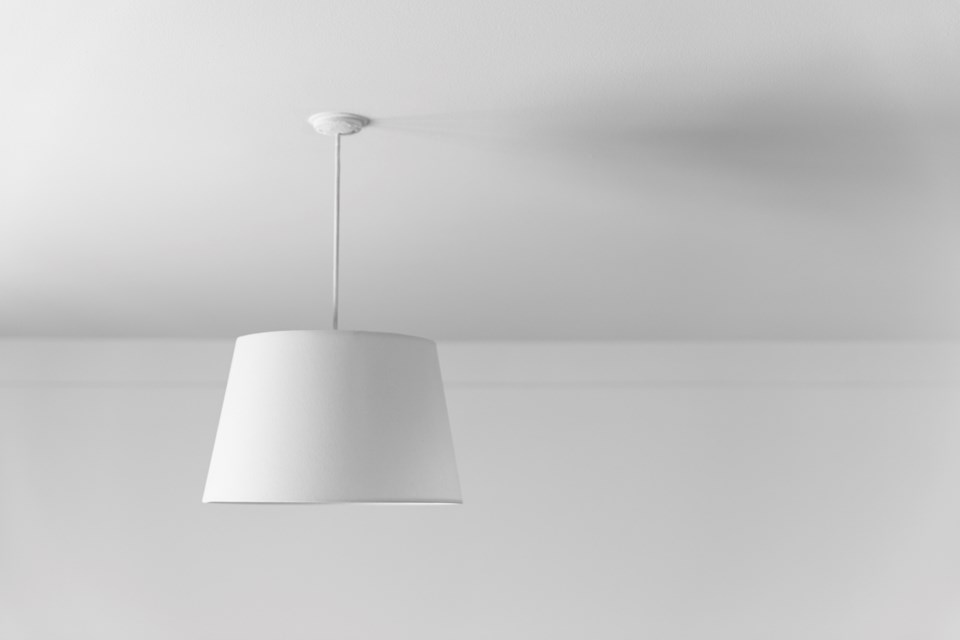A Burnaby condo owner has lost a bid to get relief from the “non-stop” “cracking, thumping, running, jumping and creeping sounds” coming from the apartment above him.
Last May, Stephen Ross’s upstairs neighbour at the Mountain Wood strata off Beaverbrook Crescent took out the carpet in her living area and hallway and replaced it with laminate flooring, according to a ruling by the Civil Resolution Tribunal this week.
After the new flooring was put in, however, Ross said the “acoustics doubled over night,” according to the ruling.
“He said he heard ‘a lot of cracking, thumping, running, jumping and creeping sounds.’ He said the cracking was non-stop and he could hear (the unit’s) residents walk, run and jump. He said he had lived in (his unit) for 17 years and never had this noise transfer since 2004.”
Ross complained to the strata, which arranged for formal acoustic engineering testing, but the engineer who co-authored the report concluded the sound insulation under the floor met the minimum requirements of the BC Building Code.
Sympathetically, however, the engineer also noted those requirements are “clearly not adequate in many circumstances” to satisfy all occupants.
After the report, the strata told Ross it had concluded the flooring had been installed properly and it wouldn’t be taking any further action.
Ross’s frustrations culminated in a series of texts with his upstairs neighbour, Gabi Boswell, toward the end of July.
“In them, Mr. Ross advised Ms. Boswell that his family was emotionally drained from all the noise of cracking, thumping and running,” stated the ruling. “Ms. Boswell responded that her daughter was playing Barbies on the floor with her friend and there was nothing else going on to cause noise.”
By that time, Ross had already applied to the Civil Resolution Tribunal for an order forcing the strata to have the floors replaced and to pay him $8,000 for loss of enjoyment of his property because of the noise.
Ross filed sound recordings and noise logs as evidence of the noise, but tribunal member Leah Volkers was unconvinced.
She said the recordings did capture sounds coming from the upstairs apartment but didn’t reflect “constant, loud or excessive sounds” and didn’t prove the sound was “intolerable,” which is the threshold necessary for nuisance finding.
“I also find the timing of the recordings shows that the sounds often occurred in the morning and evening, when residents would typically be moving about their strata lot,” Volkers said in her May 4 ruling.
Ross also filed a number of witness statements that described lots of noise coming from the upstairs apartment.
One witness said a child running around upstairs “sounded like an earthquake” and dropped items made “loud booms.”
Another witness spoke of “a pet playing, keys dropping, residents walking across the floor, the floor cracking and popping.”
But Volkers notes the witness statements were mostly provided by Ross’s friends and family and “not entirely objective.”
“While I accept that there was increased noise in (Ross's unit) following the flooring alterations in (the upstairs apartment), I find the witness statements do not establish that the increased noise was objectively intolerable,” Volkers concluded.
For objective evidence, she said she put “significant weight” on the engineering report that determined the new floor met minimum requirements.
Volkers wasn’t without sympathy for Ross, who lives with his spouse and a daughter with autism spectrum disorder and attention deficit hyperactivity disorder, but she ultimately dismissed the case.
“I acknowledge that the increased noise has been particularly bothersome to Mr. Ross, his partner, and their daughter, because of (their daughter's) autism diagnosis,” she said. “However, the test for nuisance is not whether there is increased noise with laminate flooring than there was with the previously carpeted floor. Rather, as noted, the test is whether the noise itself is objectively intolerable to an ordinary person.”
Follow Cornelia Naylor on Twitter @CorNaylor
Email [email protected]



